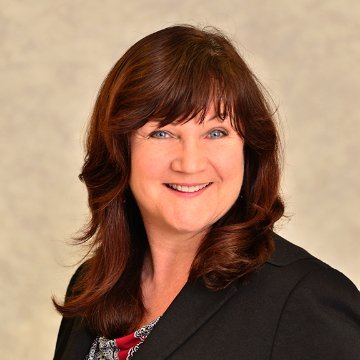In the late 1970s Morgan Hill was one of the fastest growing cities in the nation
![]()

By Cheri Brown

Cheri Brown
One of the primary goals of the Morgan Hill Chamber of Commerce is to advocate for the needs of the local business community. Few businesses can succeed without a workforce, and many require their staff to be local. The median income for a Morgan Hill household is about $124K per year, and the median price for a home is $1.5M. This is an enormous disconnect in affordability.
“Affordable housing is a statewide problem to solve,” said Nick Gaich, chamber president & CEO. “When we think of economic development opportunities that lead to greater prosperity, we likely think of major employers such as advanced manufacturing, corporate offices, healthcare, and the education sectors of our community. While these are essential to job growth and overall economic health, it is important to add to the conversation an often-overlooked factor that provides substantial economic development benefits to the community and one that has quickly risen to the top of the list for all our current and prospective business owners and that is the significance of affordable housing with respect to employer recruitment and retention.
In the late 1970s Morgan Hill was one of the fastest growing cities in the nation. Like today, the community was frustrated by the changing culture and strain on city resources. Residents responded by passing Measure E in 1977, this limited the city’s population to 30,000 by the year 2000. It was followed by additional measures P, C and F. The regulations resulted in one in eight homes being affordable and spreading those affordable homes throughout the community. These laws were suspended by the enactment of State Bill 330 which suspended any action that delays or decreases new housing for 10 years.
 In response to State Bill 330, the city council passed the Inclusionary Housing Ordinance to require 10 to 15 percent affordable units in new housing developments to continue the tradition of requiring affordable housing. The median household income in Morgan Hill in 2021 was $139K. Per the California Department of Housing and Community Development guidelines, a family of four with an income of $137K qualifies for Low Income Housing.
In response to State Bill 330, the city council passed the Inclusionary Housing Ordinance to require 10 to 15 percent affordable units in new housing developments to continue the tradition of requiring affordable housing. The median household income in Morgan Hill in 2021 was $139K. Per the California Department of Housing and Community Development guidelines, a family of four with an income of $137K qualifies for Low Income Housing.
In addition, Rebecca Garcia, the city of Morgan Hill’s Housing Director, said, “When you study the data and the needs of your community, there is no denying there is a need to address disparities in housing and access to opportunity. Fifty-one percent of Morgan Hill residents are housing cost-burdened or spend more than 30 percent on housing, and 28 percent rely on financial assistance. More than 900 Morgan Hill Unified students are homeless, doubled up, or living in RVs. Our essential workforce is the primary group struggling with these disparities.
“Advocating for the local business community’s needs is not just about advocating for workforce housing. It’s about recognizing that without housing, there is no workforce; it’s one and the same. As a community, we must come together to create realistic housing payments for our workforce, understanding that this is a shared responsibility,” Garcia added.
Morgan Hill has affordable housing opportunities for sale and for rent in our community and per Garcia, “the city of Morgan Hill has been tasked with developing at least 1,037 housing units in the next eight-year housing element cycle, of which 587 are considered affordable.”
After income qualification, acceptance into the new affordable housing units available in the city is by lottery, to learn more go to www.housekeys1.com or call (877) 460-5397. Priority is given to people who live and work in Morgan Hill.
Despite all the city is doing to provide affordable housing, there is a shortfall. Garcia said “there are 5,630 families that qualify as either extremely low income, very low income or low-income and only 1,196 housing units available.We are meeting the needs of 21 percent of the community.”
Affordable housing limits rent or house payments to 30-35 percent of the occupant’s income, community members who rent or buy in the general market pay as much as 55 percent of their income toward housing.
“I am a firm believer business development, job creation, employee recruitment and retention, and stabilized neighborhoods are all part of the economic wellbeing of our city,” Gaich said.
Cheri Brown serves on the Board of Directors for the Chamber of Commerce and is an independent insurance broker specializing in Medicare Supplements and Medicare Advantage plans. She can be reached at [email protected].







